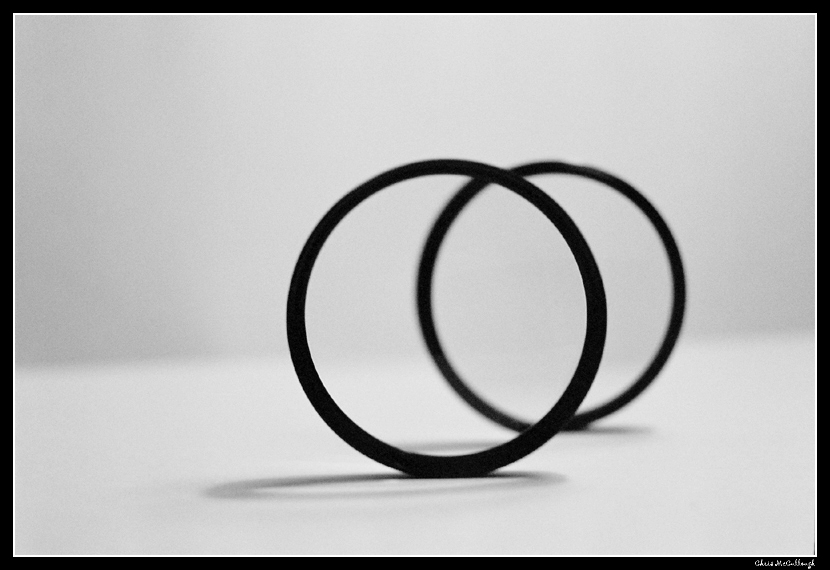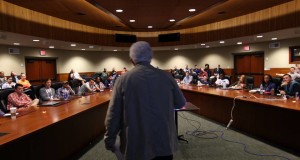(Feature image provided by Knold)
Can oil and water mix? Can they become the same substance? Or, at the very least, can they be packaged into a single product?
Several years ago, when I was thinking of proposing to my (now) wife, Heather, I came across a passage in scripture that halted me:
Do not be unequally yoked together with unbelievers. For what fellowship has righteousness with lawlessness? And what communion has light with darkness? (2 Corinthians 6:14)
That same passage came to mind years later when I returned to writing fiction.
If you’re like me, when I first read that passage , I had no clue what a yoke was. I actually thought the Bible was talking about an egg at first. But a yoke is a harnass that allows multiple animals to plow or till a piece of land in unison. It joins the two bests in a common purpose, and for the animals to work efficiently, they must move in the same direction and at the same pace, otherwise the land might look like a sloppy mess.
When I published my collection of short stories, titled “Amidst Traffic,” I thought I could have the best of both worlds. I thought I could market to both the Christian and Literary readers together.
What I came to realize, however, is that there is a fundamental divide between the literary market of readers and the Christian one. The two don’t mix well.
Christian and literary fiction are not necessarily exclusive (the way, for example Christian and Erotica are), but a chasm has grown between the two genres over the last few decades.
Contemporary literature has a tendency to explore existential philosophies, life’s meaninglessness, sexual “freedom,” human individuality, personal lonesomeness, along with a myriad of other themes. The prose is usually rich and full of metaphor. The tone is often moody and its style can be gritty or even experimental.
Christian fiction (as of late), has a tendency to be more straight forward, filled with supernatural elements, less prosy, more spiritual and often even preachy. The tone appeals to a sense of hope and the writing style is more traditional and less risky.
Also, not to overstate the obvious, but the literary movement typically sides with the liberal camp on most political and philosophical topics, while the Christian movement is politically conservative.
For these reasons the Christian reader often guards himself against contemporary literary books and the literary reader rejects Christian fiction.
Though shallow and generalized, the expectations are simple: The literary reader thinks a Christian book will be preachy and trite (full of false hope), and the Christian reader often won’t appreciate the more experimental nature of contemporary lit. I’m not saying this is true all the time, but generally it is true. I’ve met enough readers in both realms who were willing to cross the border and judge a work based on its merit rather than its label, but typically readers remain in their “safe” zone.

There is a small overlap of readers who consider themselves BOTH Literary and Christian (Photo by Failing Senses)
Not to be overly dismissive, but I’ve actually noticed that the literary reader is more guarded against the “Christian” genre than the Christian reader is to the “Literary” one. I once had a book reviewer ask for a copy of my book, and as soon as she found out that “Amidst Traffic” held Christian themes, she refused to even read it. On the other hand, I’ve sent the same collection to Christian readers/reviewers who weren’t nearly as threatened by its gritty style and moody tones. In fact, they found those elements refreshing.
When I tried to market my work to both camps, I thought I was appealing to a larger audience, but really I was just attracting the narrow overlap from the Venn Diagram. Thanks to a conversation I had with author R.W. Ridley, I was able to identify the weakness in my marketing strategy. He said that I shouldn’t try to “serve two masters” (such an appropriate phrase, actually), but pick one camp and stick with it. Then, in the end, I’d have a better chance to break out. I consider this to be a wise choice so long as I didn’t have to change my writing style.
For that reason, I’ve decided to brand myself to the Christian camp (even though I personally find Christian fiction pretty weak when it comes to literary substance and prose quality). By identifying with a Christian market, I won’t have to compromise on personal conviction or message. Even though the Christian market isn’t currently molded to accept experimental and gritty fiction, I have a better chance of finding readers in this market than the literary one. It is by staying true to my Christian faith that I can write fiction I love to write and inject literary prose into it.
I don’t think the opposite would be true if I tried to market myself as a literary author.
What about you?
Are there two genres that you’re trying to combine with little success? Do you think it would be helpful to abandon one of the two and market yoursel only to one in order to create a more tangible niche?
 Michel Sauret – Award-Winning Army Journalist | Independent Author Award-Winning Army Journalist, Independent Author
Michel Sauret – Award-Winning Army Journalist | Independent Author Award-Winning Army Journalist, Independent Author








I think you’re right about non Christian readers wanting to avoid anything described as Christian more than Christian readers wanting to avoid anything ‘literary’.
Comparing this to other creative mediums, it’s easy to tell when a musician or a director places their Christianity higher than their craft. In cases like these, it’s easy to get the feeling that the listener or viewer is being ‘sold’ Christianity because the art form that formed the vehicle for the religious message was overlooked.
But some of the greatest classical works are based on Christian traditions. No one feels that any of it is ‘Christian’ or that they are being sold a religion – because the music is just so good. I have seen hardcore musical intellectuals who happen to be atheists listen with tears in their eyes to Mozart’s Requiem Mass – his famous unfinished masterpiece that was written to perform a religious function. The bottom line is that if the music is good, people will appreciate it, whatever the subtext. And the same has to be true of writing. It just hasn’t caught on as hard.
If I had to make the decision you had to make – going Christian or Literary – I would have gone for the one that did not involve the selling out of any personal convictions. We might be writing for an audience, but it all has to stem from somewhere. Give that up and the ideas won’t flow and the writer’s voice will become introvert.
I wish you well. There certainly is a strong tradition of Christian writers. We should be good readers and writers; we are people of the book, after all. I teach at a state college and am proposing to teach an English elective class of literature by Christian authors. I want to focus on post-WWII writers. It is difficult to find suitable texts, and I have no idea if my department will even approve the class. It is important that we keep trying to bridge that artificial and unnecessary gap.
Hey Carolyn, that sounds like a really cool class! Please be cautioned that my writing, though it holds strong theological themes, does hold some graphic content, even in my latest revision which toned down the language a lot. I give more explanation to this in the intro to the book.
At which college do you teach?
God bless!
Michel